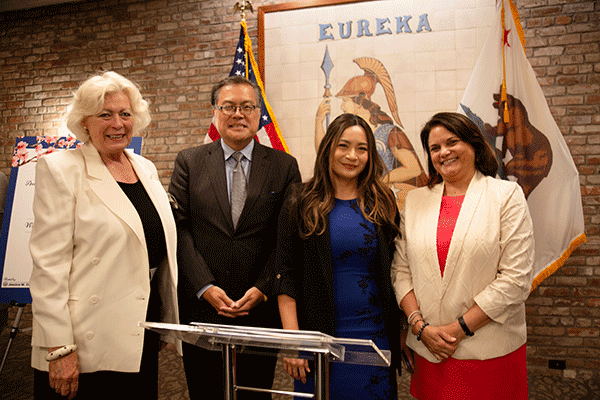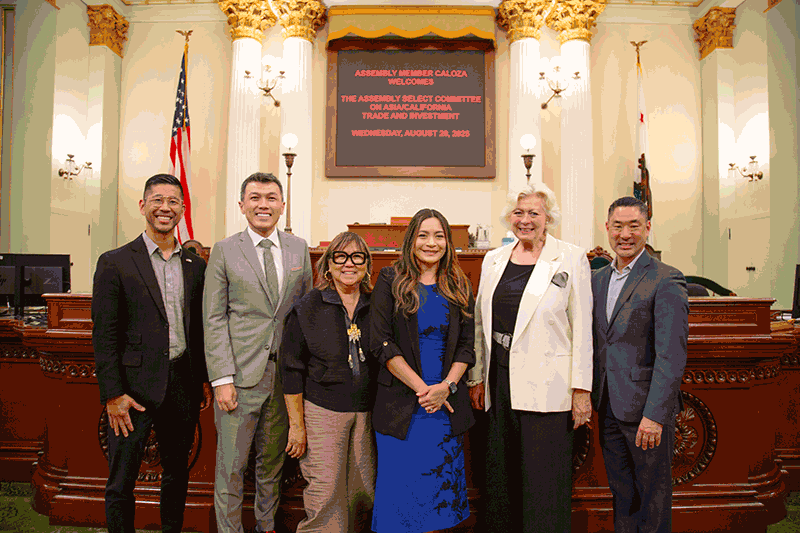The status of trade and investment between California and Asia and the effects of U.S. trade tariffs were the focus of the first informational hearing of an Assembly select committee last week.
The first hearing of the Assembly Select Committee on Asia/California Trade and Investment on August 20 was preceded by a lunch at the State Capitol hosted by the Caifornia Chamber of Commerce. The luncheon provided an opportunity for members of the California-Asia community — including many who had traveled from other parts of the state, Washington, D.C. and even Japan — to come together before the afternoon Assembly hearing.

Committee Chair Jessica Caloza (D-Los Angeles), the first Filipina elected to the California Legislature, welcomed attendees to the meeting. Next came remarks from Lt. Governor Eleni Kounalakis, who serves as California’s trade representative. Deputy Consul General Takeshi Ishihara from the Consul General of Japan in San Francisco highlighted the special California-Japan relationship.
Next on the agenda was an overview of California/Asia Trade, Tourism, and Investment by Stephen Cheung, president of the World Trade Center Los Angeles (see Foreign Direct Investment in California 2025), Rodney Fong, president and CEO of the San Francisco Chamber of Commerce, and Caroline Beteta, president and CEO of Visit California (see Visitation and Spend Forecast).
The impact of federal tariffs with Asia and California was touched upon by panelists Glen S. Fukushima, senior fellow, Center for American Progress, and Professor Kyle Handley, associate professor of economics and director of the Center for Commerce & Diplomacy School of Global Policy and Strategy at the University of California, San Diego. (See CalChamber tariffs page for more information.)
The closing panelists, providing remarks about the future of trade and investment with Asia and California, were Chris Cate, CEO of the San Diego Regional Chamber of Commerce, and Susie Pryor of the Central California Small Business Development Center Regional Network.
Chair Caloza indicated there may be a second informational hearing and offered thoughts on the potential for legislation that may support and enhance California trade and investment with Asia.

California Global Standing
As the fourth largest economy in the world with a gross state product exceeding $4 trillion, international trade and investment are major parts of California’s economic engine that broadly benefit businesses, communities, consumers and state government. California’s economy is diverse, and the state’s prosperity is tied to exports and imports of both goods and services by California-based companies, to exports and imports through California’s transportation gateways, and to movement of human and capital resources.
According to the International Monetary Fund’s 2024 World Economic Outlook data released April 22, 2025, California’s nominal gross domestic product (GDP) reached $4.1 trillion, surpassing Japan’s $4.02 trillion, and placing California behind only the United States, China, and Germany in global rankings.
Although trade is a nationally determined policy issue, its impact on California is immense. In 2024, California exported $183.34 billion to more than 225 foreign markets, of which $71.893 billion in goods went to Asia. Trade offers the opportunity to expand the role of California’s exports. In its broadest terms, trade can literally feed the world and raise the living standards of those around us.
Staff Contact: Susanne T. Stirling

